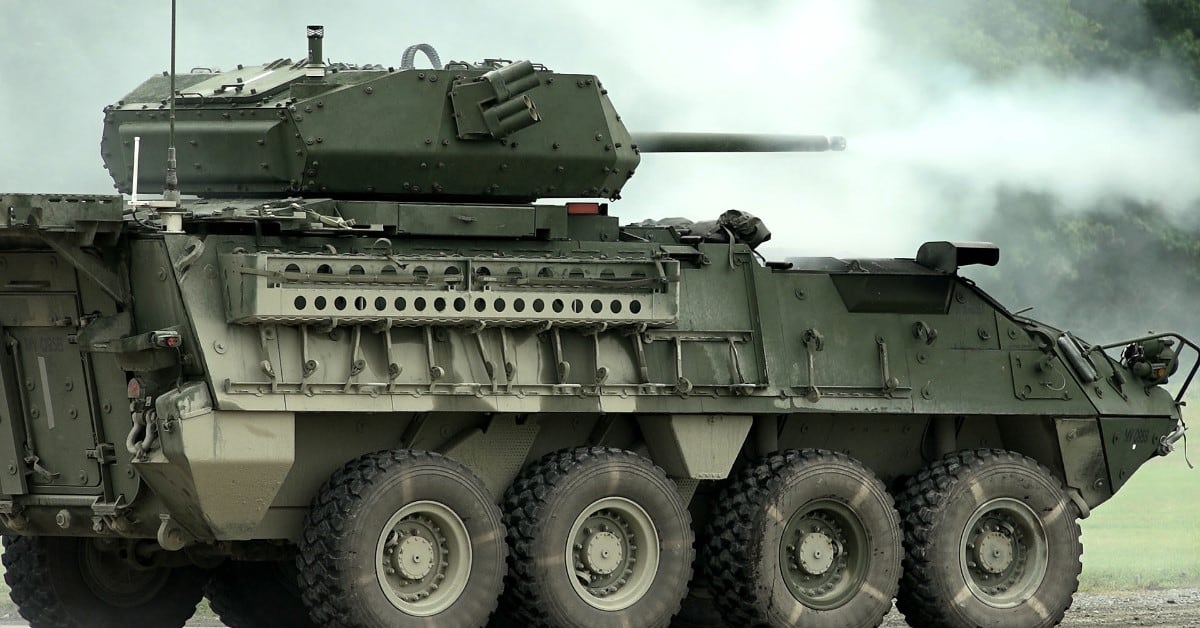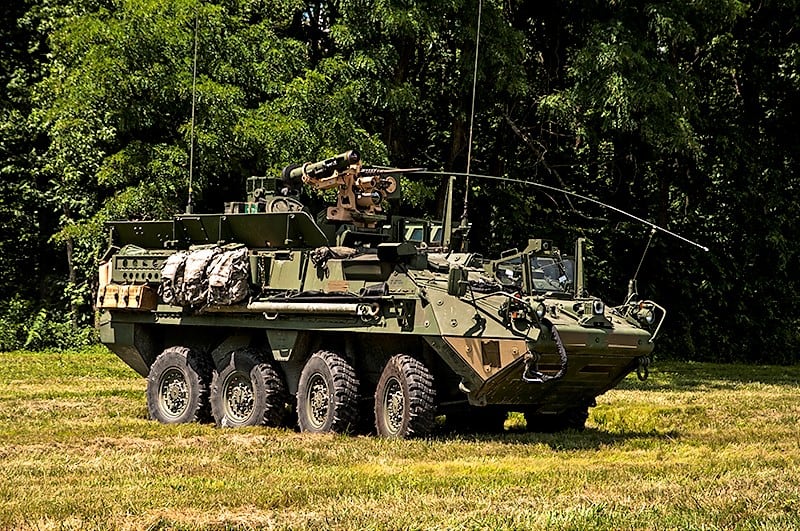A new tech solution being fielded to the 2nd Cavalry Regiment in Germany this month will remove a long-standing vulnerability to dismounted troops working with Strykers.
Until now, if a soldier needed to fire a Javelin missile from the light-armored vehicle, the Stryker would have to stop, the soldier would get out and hit the target with the shoulder-fired missile, and then jump back on board.
It’s kind of a 20th Century method for shooting small missiles that leaves the soldier too exposed for modern combat, where troops are required to fight fast-targeting enemies with advanced sensors and shooters.
RELATED

So, researchers with Project Manager Soldier Weapons at Picatinny Arsenal, New Jersey, adapted the Common Remotely Operated Weapon Station, which has been used for years to fire crew-served weapons from the interior safety of the Stryker, to fire Javelins.
PEO Soldier staff said that 86 systems are part of the initial fielding. A follow-on upgrade will begin fielding in late 2020 that will replace 240 existing remote fire systems on a variety of Strykers within a not-yet-identified Stryker BCT.
Stryker upgrades got a lot of attention last year when the program beefed up their firepower with a 30mm cannon to replace the two .50 caliber machine guns it previously carried.

The Army was provided more than $300 million in emergency congressional funding in late 2015 to rapidly develop and field the upgunned Stryker as a counter to Russian aggression on the European continent.
“This capability that is coming to 2CR is directly attributable to Russian aggression,” Lt. Col. Troy Meissel, the regiment’s then-deputy commander, told reporters in 2017.
The previous Stryker version was outmatched by Russia’s BMP-3 tracked infantry fighting vehicles, used in the Russian invasion of Ukraine.
Todd South has written about crime, courts, government and the military for multiple publications since 2004 and was named a 2014 Pulitzer finalist for a co-written project on witness intimidation. Todd is a Marine veteran of the Iraq War.




